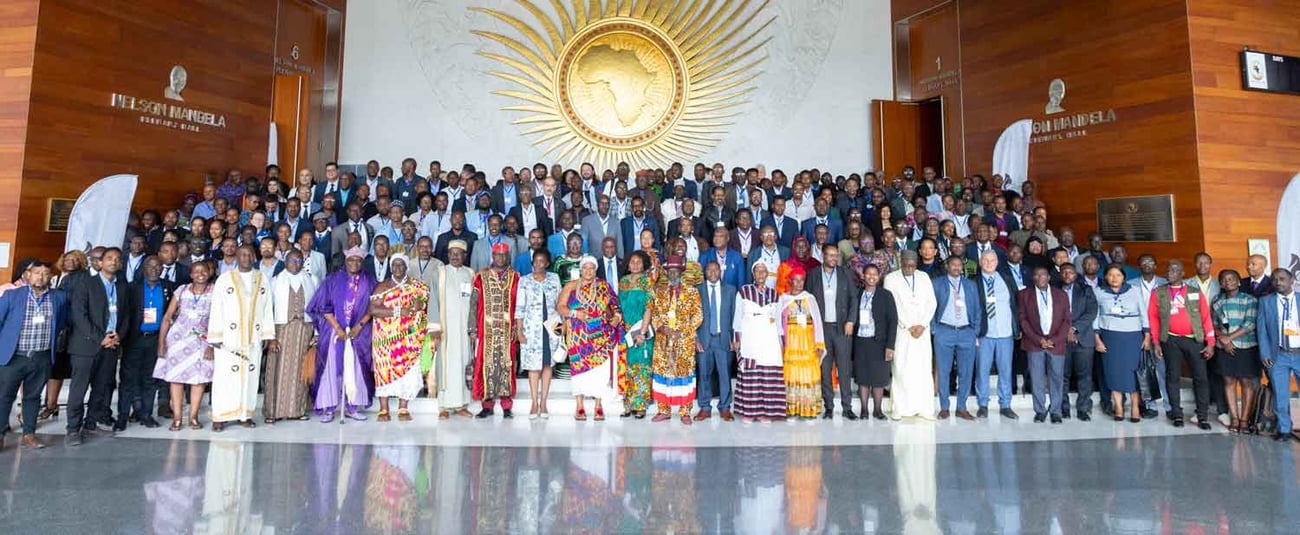Land governance regulating access, use and ownership of land is critical to the successful implementation of the African Continental Free Trade Area (AfCTA) and is needed to promote inclusive and sustainable development, experts at an African land policy conference heard.
Leontine Kanziemo, the Africa Development Bank’s advisor on Natural Resources Management, told the opening session of the 2023 Conference on Land Policy in Africa in Addis Ababa on 21 November that improved land governance was essential to protect vulnerable groups, including women, as agricultural trade expands in a pan-African market.
“Expansion of intra-African trade and the resulting demand for goods such as agricultural goods will affect land systems including land value and sustainability, increasing large-scale land acquisitions by public and private actors, and insecurity of land tenure for women, youth, pastoralists, and other vulnerable groups,” she told the conference.
Therefore, the issue of good land governance is critical for the successful implementation of AfCTA and to support the promotion of gender equality, the development of resilient infrastructure and communities, and ensuring even development within countries, she said.
“A successful continent-wide market for goods and services, business and investment, represents a major opportunity for African countries to boost growth, reduce poverty, and broaden economic inclusion,” Kanziemo said, speaking on behalf of Dr. Vanessa Ushie, Acting Director of the Bank’s Africa Natural Resources Management and Investment Center.
Under the theme “Promoting Sustainable Land Governance in Africa for Accelerating Implementation of the AfCFTA”, the conference brought together technical experts from across the continent to explore the land governance issue in relation to its impact on AfCFTA.
The implementation of AfCTA has already started to smooth intra-continental trade through the harmonization of customs management, transport facilitation, trade and project finance, and institutional development, delegates heard.
However, inadequate governance of land and land-based natural resources has suppressed growth and negatively impacted industrialization and job creation and increased inequalities, Kanziemo said.
She called on governments to continue to invest in supporting women farmers in line with the 2016 Africa Union campaign to allocate 30% documented allocation of land to African women by 2025 for Africa’s economic transformation.
She told the meeting that the African Development Bank will continue to ensure that all its regional member countries prioritize land policies in their national development and policy frameworks and continue building the capacity of national land institutions and supporting inclusive land tenure rights in order to deliver country poverty reduction programs.
Dr Robert Lisinge, Acting Director of the Private Sector Development and Finance Division at the UN Economic Commission for Africa (ECA) said African citizens need to maximize benefits from their land and its resources by taking advantage of enhanced trade under AfCFTA to boost sustainable development and environmental stewardship.
“AfCFTA holds the potential to lift 30 million people out of extreme poverty and boost Africa’s income by USD 450 billion while connecting 1.3 billion people,” Lisinge said.
Sound land governance systems are essential to ensuring youth, women, communities, and the private sector can benefit from the free trade area, he said.
“Good land governance promotes secure access to land and creates an enabling environment for investments that are key to unlocking the productive capacities of Africa. Good land governance will support agro-industrial parks, infrastructure and renewable energy, all needed ingredients for industrialization and trade,” Lisinge told the conference.
Josefa Sacko, AU Commissioner for Agriculture, Rural Development, Blue Economy and Sustainable Environment also highlighted the link between land policies and regional economic integration.
“AfCFTA presents a transformative opportunity for intra-African trade, industrialization, and economic growth, and coherent land governance is fundamental to realizing its full potential,” Sacko said.
Secure land tenure, facilitating access to land for productive activities, and harmonizing land administration systems will underpin AfCFTA’s success and foster inclusive development.
“AfCFTA stands as a monumental endeavour, offering unparalleled opportunities for economic growth, integration, and prosperity across the African continent,” she told the conference.





